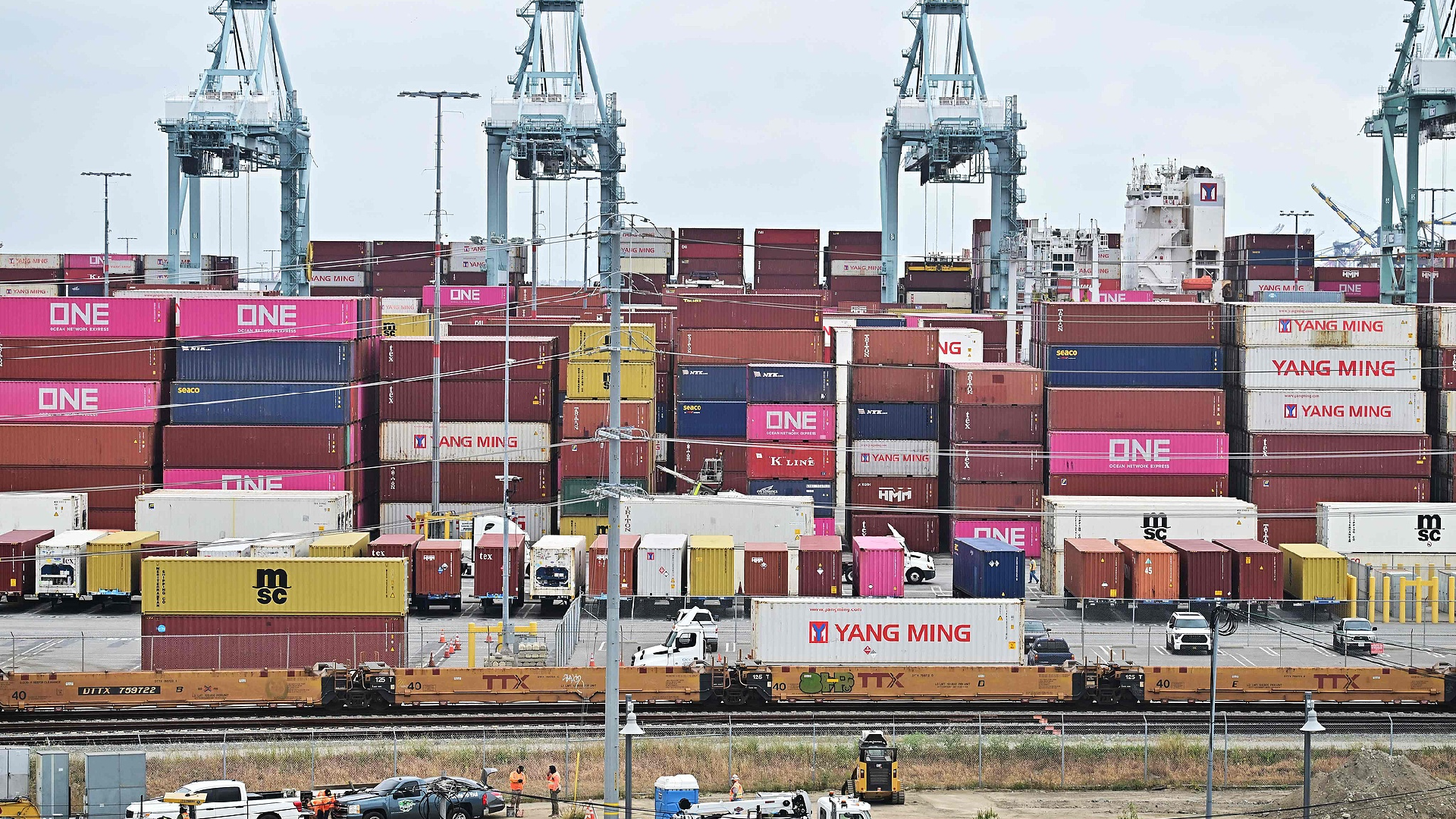LA Port struggles under U.S. tariffs, sparking fears about jobs and costs
The negative impacts of the U.S. government's tariff policies are becoming more apparent at the Port of Los Angeles, which is the largest container port in the country and was previously the busiest. Recently, the port has begun to receive its initial shipments of Chinese goods that are now facing tariffs as high as 145 percent.

"This week, we're down about 35 percent compared to the same time last year, and these cargo ships coming in are the first to be affected by the tariffs imposed on China and other regions last month," Gene Seroka, executive director of the Port of Los Angeles, told CNN on Tuesday. "That's why the cargo volume is so light."
Seroka pointed out that while there had been expectations for 80 ships to arrive in May, about 20 percent of those sailings have been canceled as U.S. companies cut back on purchases of Chinese goods in reaction to the tariffs.
"Retailers and importers alike are telling me that products now cost about two and a half times more than they did just last month," he added.
In a discussion with NPR, Seroka highlighted that the cargo passing through the Port of Los Angeles serves all 50 states and 435 congressional districts, underscoring the port's vital role in the economy of the city, region, and country at large. He also mentioned concerns about the uncertainty of how long this situation might continue.
The significant drop in cargo volumes poses serious consequences: U.S. dockworkers are facing reduced job opportunities, and consumers could see higher prices and shortages within weeks as inventories built up before the tariffs begin to dwindle.
Sal DiCostanzo, a member of the International Longshore and Warehouse Union, drew attention to the unusually empty berths and noted that many people are unaware of the gravity of the situation during an interview with consultancy firm CTOL Digital Solutions. He elaborated that these conditions jeopardize the livelihoods of about 900,000 workers in Southern California.
CTOL Digital Solutions reports that economic modeling indicates a loss of roughly 2,800 jobs for every 1 percent decrease in container volume.
The repercussions extend beyond the docks. Local businesses, including coffee shops in the vicinity, are also feeling the effects. One cafe owner shared that 80 percent of her customers used to be dockworkers, but her shop now sits nearly empty. She posed a critical question to the Trump administration: "Where are the jobs you promised?"
Furthermore, Ryan Petersen, CEO of Flexport – a logistics and freight forwarding company – communicated to CNN that as importers and retailers are hesitant to bear the increased costs, deliveries could shrink by as much as 60 percent.
"A 60 percent decline in containers means 60 percent less stuff arriving," Petersen explained. "It's only a matter of time before existing inventory sells through – and then you'll see shortages. That's when prices will spike."
The National Retail Federation expects that U.S. imports will decrease by at least 20 percent year over year in the latter half of 2025.
While Seroka does not predict complete empty store shelves, he foresees a reduction in consumer choices.
"So if you're looking for a certain type of pants, you may find plenty of pants – but not the exact kind you want. And the kind you do want will come at a higher price," Seroka said.
Ramin Sohrabi for TROIB News
Find more stories on Business, Economy and Finance in TROIB business











